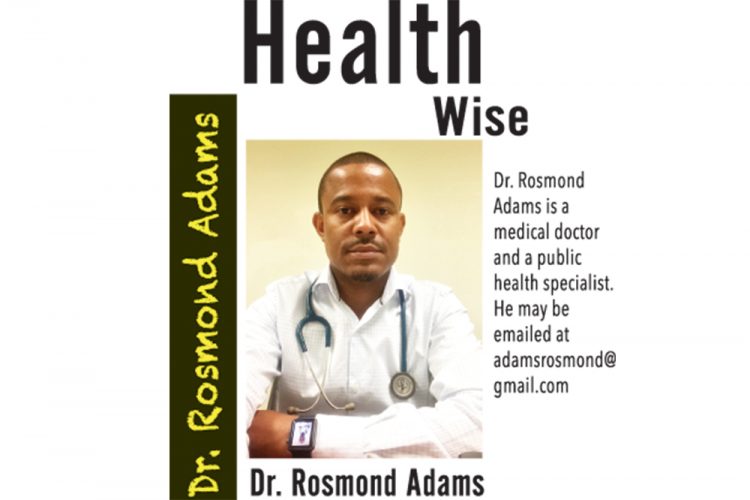Reducing the risk of Breast Cancer

October is Breast Cancer Awareness month. During this month people wear the colour pink to raise awareness about the disease.
There are many activities planned throughout the world with the hope that public awareness, advocacy and support can help to reduce the incidence of the disease and increase the survival rate of those affected.
While there is no sure way to prevent breast cancer, there are things one can do to lower the risk.
Lifestyle changes have been shown in studies to decrease breast cancer risk even in high-risk women. The following are steps that can be taken to lower the risk:
1. Limit alcohol intake: The more alcohol that you drink, the greater your risk of developing breast cancer. The general recommendation — based on research on the effect of alcohol on breast cancer risk — is to limit yourself to less than 1 drink per day as even small amounts increase risk.
2. Don’t smoke: Accumulated evidence suggests a link between smoking and breast cancer risk, particularly in premenopausal women. In addition, not smoking is one of the best things you can do for your overall health, since smoking is a risk factor for other diseases.
3. Control your weight: Being overweight or obese increases the risk of breast cancer. This is especially true if obesity occurs later in life, particularly after menopause.
4. Be physically active: Physical activity can help you maintain a healthy weight, which, in turn, helps prevent breast cancer. For most healthy adults, it is recommended that at least 150 minutes a week of moderate aerobic activity or 75 minutes of vigorous aerobic activity weekly, plus strength training at least twice a week can help.
5. Breast-feed: Breast-feeding might play a role in breast cancer prevention. The longer you breast-feed, the greater the protective effect.
6. Limit dose and duration of hormone therapy: Combination hormone therapy for more than three to five years increases the risk of breast cancer. If you’re taking hormone therapy for menopausal symptoms, ask your doctor about other options. You might be able to manage your symptoms with non-hormonal therapies and medications. If you decide that the benefits of short-term hormone therapy outweigh the risks, use the lowest dose that works for you and continue to have your doctor monitor the length of time you are taking hormones.
7. Avoid exposure to radiation and environmental pollution. Medical-imaging methods, such as computerized tomography, use high doses of radiation. While more studies are needed, some research suggests a link between breast cancer and radiation exposure. Reduce your exposure by having such tests only when absolutely necessary.
Remember that these risk factors are very easy to avoid and with so doing your risk of developing breast cancer can be significantly reduced.
Dr. Rosmond Adams, MD is a medical doctor and a public health specialist with training in bioethics and ethical issues in medicine, the life sciences and research. He is a lecturer of medical ethics.
He is the Head of Health Information, Communicable Disease and Emergency Response at the Caribbean Public Health Agency (CARPHA). He is also a member of the World Health Organization Global Coordination Mechanism on the Prevention and Control of NCDs.
(The views expressed here are not written on behalf of CARPHA nor the WHO). You may contact him at adamsrosmond@gmail.com









